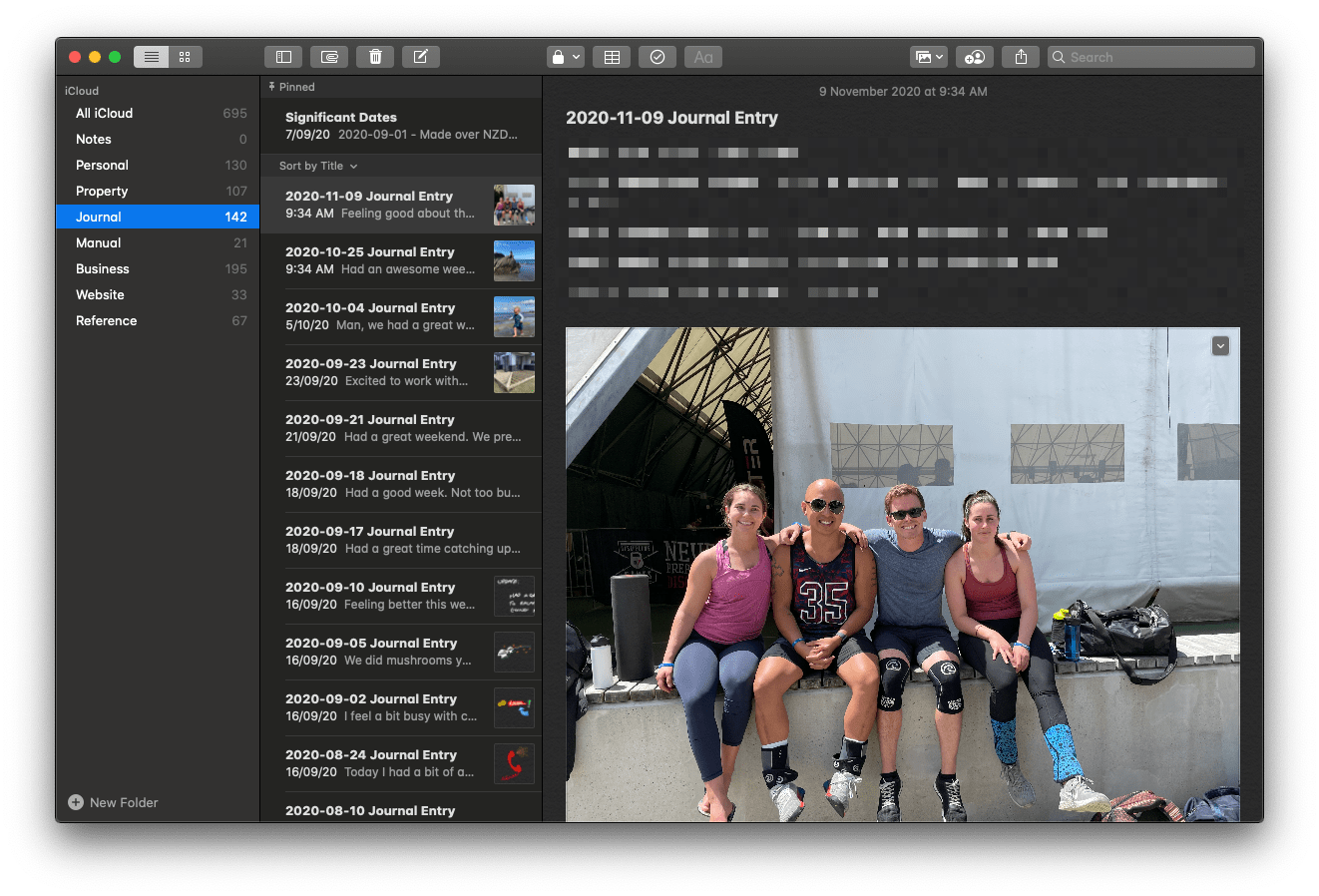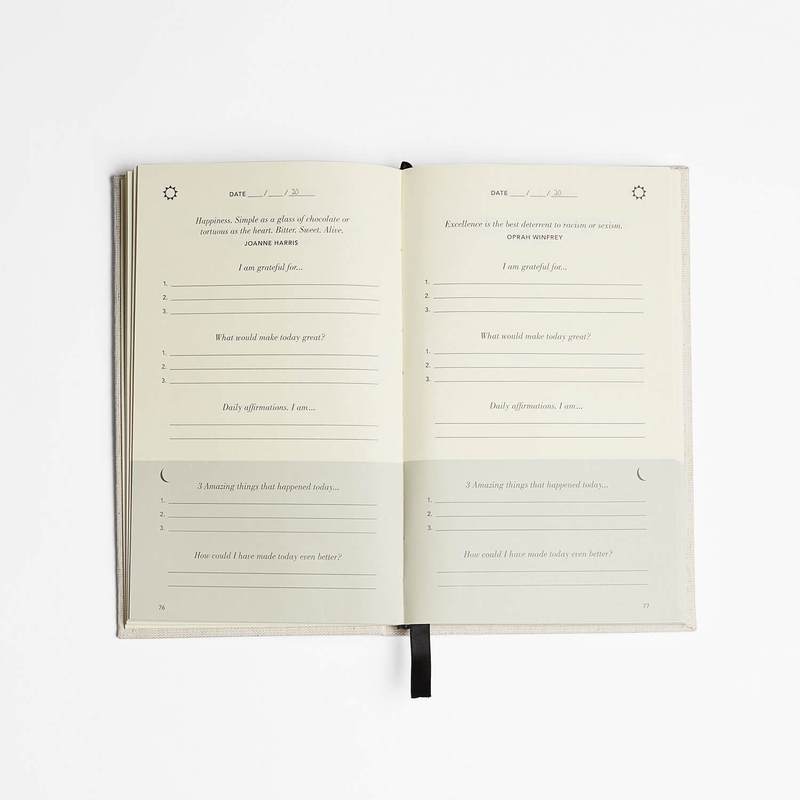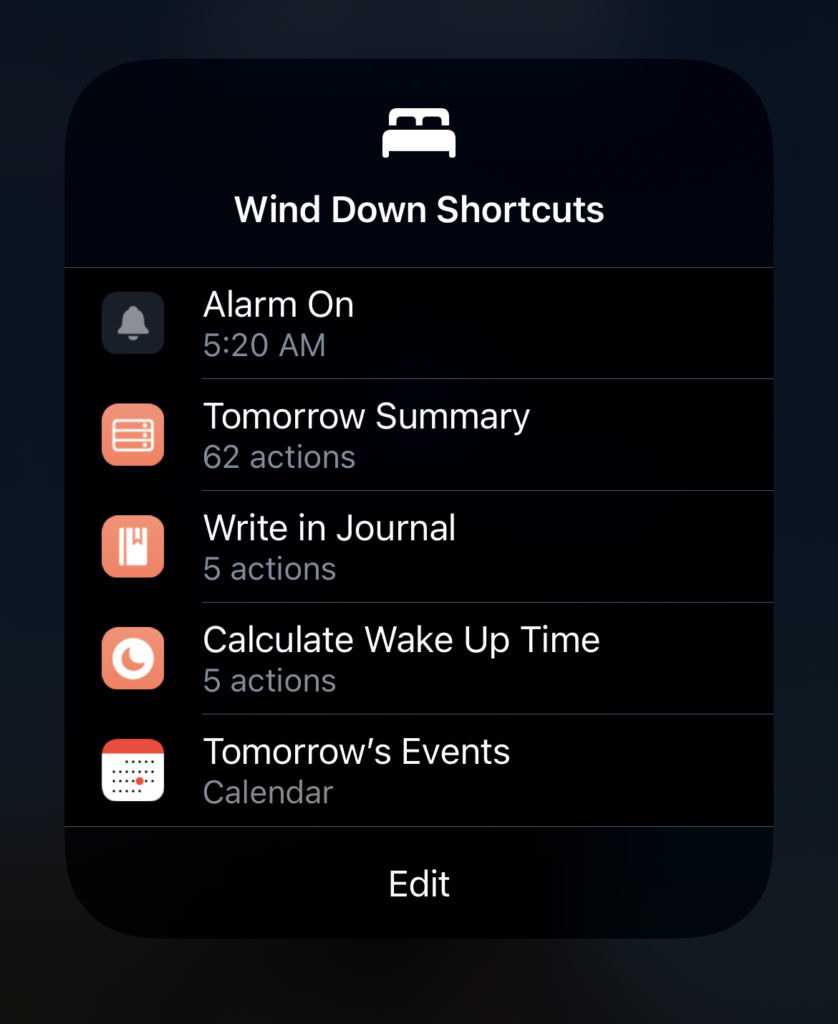As I’m sure you’re aware, journaling is one of those habits that a lot of ‘successful’ (whatever that means) people seem to have adopted.
And journalling is often presented through this lens of being a tool to help you be more successful. And I don’t have an issue with that. But for me, journaling isn’t something I do to try and be successful. For me, journaling is a tool to find peace of mind.
Don’t want to read this post? Listen to the podcast instead:
Want to see my journaling process in action? Check out the video below:
Some people get up and journal each and every morning or at night before bed. If you’re one of these people, power to you!
My journalling routine is more random. I don’t journal every day or even every week. Generally, I only journal when I feel that I need to. If I’m feeling stressed or overwhelmed, I use my journal to offload my thoughts and do a bit of personal therapy.
And I don’t use any fancy apps or notebooks. I have a notebook in Apple Notes called ‘Journal’ (which I talk about here) and I create a new note each time I write.
In this week’s blog post, I’d like to share a few journalling methods for you to experiment with. This is by no means an exhaustive list. Just a few things I’ve tried that I’d like to share.
Journalling can be whatever you want it to be. Don’t worry what other people do, what notebook or pens they use or how often you should do it. Just do whatever works for you.Click To TweetFree-writing (or speaking)
Free-writing is my current method of journaling. There’s no structure or questions to answer, I simply write down whatever’s on my mind.
Usually, I’ll offload any thoughts that are consuming my attention (good and bad). Stuff that I keep thinking or worrying about that I want to move on from. I find that when I write things down it's like extracting a thought from my head (a bit like Dumbledore does with the Pensieve in Harry Potter).
After writing things down, I like to give myself advice. I’ll pretend that a friend has come to me with advice on what to do and I have to tell them how to react. Doing this helps me to rationalise why something I’m worried about isn’t as big a deal as I think it is.
When free-writing, I’ll also write down things I’m grateful for as a way of documenting happy memories. I like attaching photos from my phone so that months or years later when I look back at my journal I am reminded of a positive experience I had.
I don’t do this as much but a few times I’ve tried free-speaking. I’ll use the voice memos app on my phone to simply talk about whatever’s on my mind and save this to a note. Sometimes it’s nice to hear yourself verbalise the things that are on your mind and make sense of them.

5-Minute Journal
Years ago I followed the 5-Minute Journal method.
If you don’t like free-writing or find it too unstructured, the 5-Minute Journal is a nice way of being prompted on what to write about. The idea with the 5-Minute Journal is that you write in both the morning and evening.
In the morning, you answer 3 questions:
- Question 1 – What are you grateful for?
- Question 2 – What would make today great?
- Question 3 – Daily Affirmation. “I am…” (and you say something about yourself e.g. confident, capable, happy)
These questions help you to set your intentions for the day.
And in the evening, you close out the day by answering two more questions:
- Question 4 – 3 Amazing things that happened today…
- Question 5 – How could I have made today even better?
These questions help you to end the day by reflecting on what was great and how to make tomorrow even better.
I like the idea behind these questions. But sometimes I would just have a normal day and nothing ‘amazing’ happened. While I recognise the point is to try and appreciate the small things, this feels a bit forced for me.
While I don’t follow this journalling method any more, this is a great method for someone new to journalling who wants a bit more structure or guidance on what to write about. It’s also good for getting into a consistent habit that you do each day. Where my free-writing is quite random and sporadic, the point of the 5-minute Journal is that you ideally do it every day.
If you enjoy physically writing, you can get The 5-Minute Journal as an actual notebook with sections for the morning and evening questions.

Ask leading questions
After experimenting with the 5-Minute journal for a while, I thought it would be useful to customise the questions and ask myself things that would be more meaningful to me.
And while free-writing is my most common method of journalling, I’ll often ask myself these questions if I’m feeling the desire:
- What’s on my mind? – Really this is just a leading question to start free-writing about whatever’s on my mind.
- What am I grateful for? – Gratitude is common among many journalling methods as we often find happiness when thinking about things we’re grateful for. This also helps you to be more present by focussing on what’s making you happy right now, rather than always looking to the future.
- What am I currently worrying about that I can’t control? – I borrowed this idea of control from stoic philosophy. By writing down things I’m worried about that are specifically not within my control, it helps me to move past these negative thoughts because there’s nothing I can do about them.
Journaling before bed is a nice way of shutting down for the day. And one of the useful features in iOS14 is the ability to trigger shortcuts from the lock screen while your phone is in Sleep Mode. So I created a Siri Shortcut that creates a new journal entry with these leading questions. If you’d like to download and customise it for yourself, you can get it here.

—
As you can see, my journaling routine and methodology is nothing special. And that’s fine with me. Often journaling is made out to be this important thing that has to be done each day using a fancy notebook (otherwise you’re not really journalling properly).
Journalling can be whatever you want it to be. Don’t worry what other people do, what notebook or pens they use or how often you should do it. Just do whatever works for you.
Feel free to share your journalling method and tips in the comments below!
